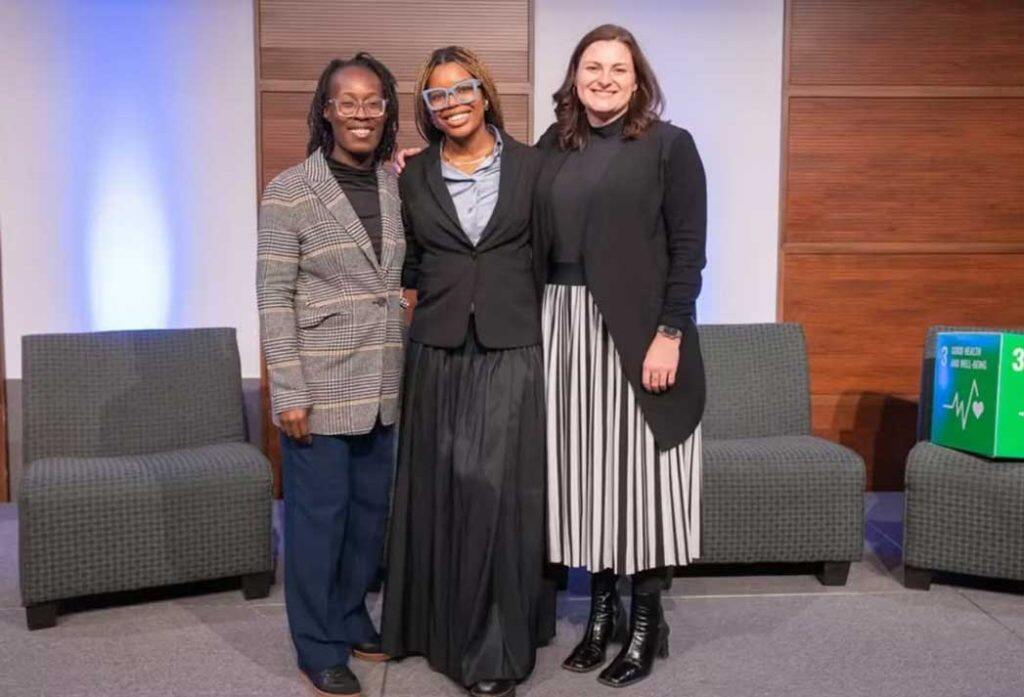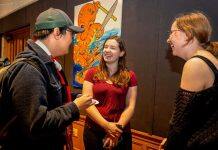Founded at the Munk School for Global Affairs & Public Policy, the student-driven Reach Alliance aims to address challenges faced by the world’s under-served and under-resourced communities.


The Reach Alliance, a student-driven initiative founded at the University of Toronto that aims to help under-served or under-resourced communities around the globe, has inked a new partnership with Howard University, one of the most prominent historically Black universities in the United States.
The partnership with Howard – the ninth for the Reach Alliance and the first with a U.S. university – was announced at the 2024 Reach Conference and opens a channel for Howard students and faculty members to engage in Reach Alliance projects and case studies.
It will support the expansion of Reach project targets by building access to communities through new idea networks based in the United States.
“Howard university shares a commitment with the University of Toronto to inclusive excellence which is the key principle driving the work we do at the Reach Alliance” said Reach founder Joseph Wong, a professor at the Munk School of Global Affairs & Public Policy and in the department of political science in the Faculty of Arts & Science who is also U of T’s vice-president, international.
Founded at the Munk School in 2015, the Reach Alliance cultivates leadership for solving urgent challenges of hard-to-reach communities – those that are under-served or under-resourced for geographic, administrative or social reasons.
Working in interdisciplinary teams, Reach’s student researchers identify innovative solutions to climate, public health and economic problems by using the United Nations Sustainable Development Goals (SDGs) as a guiding framework. The students conduct their research in collaboration with local communities, with support from university faculty members. When the research is done, each team produces a case study report that is shared with policymakers and practitioners.
In less than a decade, the Reach Alliance has grown to include universities in eight countries, with partners in Australia, Canada, Ghana, Mexico, Singapore, South Africa, the United Kingdom and, now, the U.S. It has launched over 90 case studies and findings have been published in leading outlets including The Lancet, the Stanford Social Innovation Review and the Bulletin of the World Health Organization.
Amy Yeboah Quarkume, a data scientist who is Howard University’s graduate director at the Center for Applied Data Science and Analytics, is among the newest cohort of faculty mentors.
“The Reach Alliance is truly a global partnership network, which allows us to think about how we tackle issues in D.C., where Howard is, but also in Guatemala and Ghana and other places,” she said. “Seeing and hearing how others are grappling with the same problems makes one feel as though we can go far if we work together.”
Before the conference started, the Mastercard Center for Inclusive Growth renewed their longstanding partnership with the Reach Alliance through a US$2-million gift to support key investments in enhancing Reach’s impact strategy, as well as strengthen shared network resources. Adding to the current student leadership development program, the funding allows for more cross-university collaboration, expanded knowledge translation and communications capabilities.
The 2024 gathering also expanded on media engagement with Reach initiatives. Sponsor-in-kind Devex, a media platform that focuses on stories of interest to the global development community, followed the gathering with an eye to raising the profile of Reach’s actionable research insights.
“Devex covers stories that we care about, so it felt like a natural fit,” said Marin MacLeod, the Reach Alliance’s executive director. “As we approach 2030, with much progress yet to be made on the SDGs, the time is right to ask: Who is accountable? How are we holding them accountable? And are those that are hardest to reach being accounted for?
“The higher education sector, especially the Reach Alliance, has an important role to play in co-creating actionable research insights and partnering with practitioners and policymakers to see these findings implemented.”
The participation of Devex also supports the flow of actionable information between communities and researchers throughout the world – which Quarkume said was a key strength of the alliance.
“We must find common goals to deal with common issues in order to go back and share information that helps in more than one place,” she said. “I’m excited to meet new people across the globe who are thinking, moving, trying to reach communities that have been made to wait.”
Quarkume added that the recent U.S. presidential election result will impact the role America plays on the global stage, but that she remains committed to solving global challenges.
“Political systems have changed and issues may shift, but we still must find solutions. It will take us working across borders to solve some things.”







































